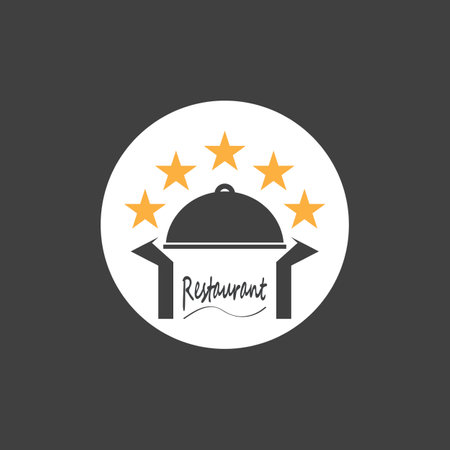Understanding Local SEO for British Hospitality
For restaurants and pubs across the UK, standing out in your local area is more competitive than ever. Local SEO (Search Engine Optimisation) specifically targets potential customers searching for hospitality venues near them—whether they’re looking for a cosy pub in Manchester or a fine dining experience in London. But what exactly does local SEO entail for British businesses, and how does it differ from traditional, broader SEO approaches?
What Is Local SEO?
Local SEO is the process of optimising your restaurant or pub’s online presence so it appears prominently when people nearby search for services like yours. Unlike general SEO—which aims to rank highly on national or global searches—local SEO zeroes in on your immediate catchment area, making it essential for high street eateries, gastropubs, and independent cafés alike.
Why Local SEO Matters for UK Restaurants & Pubs
The majority of diners now turn to Google Maps and local search results to decide where to eat or grab a pint. Without a strong local SEO strategy, even the most charming village pub can get lost beneath chain brands or less relevant options. Effective local SEO puts your venue front and centre when hungry patrons are making decisions.
Key Differences: Local vs General SEO
| Aspect | Local SEO | General SEO |
|---|---|---|
| Target Audience | Nearby residents & visitors | National or international audience |
| Search Terms | “Near me”, location-based keywords (e.g., “best pub in York”) | Broader keywords (e.g., “best British food”) |
| Ranking Factors | Google Business Profile, local citations, reviews, proximity | Backlinks, content quality, domain authority |
| User Intent | Immediate visit or booking | Research, information gathering, broader interest |
| Online Platforms Used | Maps, review sites, local directories | Mainly search engines and websites |
The unique landscape of British hospitality means that understanding and leveraging these differences is critical for attracting both regulars and new faces through your doors. By mastering local SEO tailored to UK audiences, you’ll be better positioned to draw attention in your neighbourhood—and ultimately boost your bottom line.
2. Optimising Your Google Business Profile
Setting up, claiming, and optimising your Google Business Profile is a crucial step for British restaurants and pubs aiming to stand out locally. A well-optimised profile can help attract diners searching for places to eat and drink in their area, whether they’re after a traditional Sunday roast or a pint at the local.
Setting Up and Claiming Your Listing
If you haven’t already claimed your restaurant or pub on Google, start by searching for your business name on Google Business Profile. If your listing exists, follow the verification steps; if not, create one from scratch with accurate details relevant to your British establishment.
Key Information for British Hospitality Venues
| Detail | Recommendation |
|---|---|
| Name | Use your official restaurant or pub name – e.g., “The Red Lion” or “Borough Market Fish Bar”. Avoid keyword stuffing. |
| Category | Select specific categories such as “British Restaurant”, “Gastropub”, or “Pub” to accurately reflect your offering. |
| Address & Map Pin | Double-check the address format for UK standards and ensure the map pin is exact. Mention nearby landmarks if helpful (e.g., “Opposite Camden Town Tube”). |
| Opening Hours | Include regular hours, holiday opening times (like Bank Holidays), and note if you serve Sunday lunch or offer quiz nights. |
| Contact Details | Add a local phone number (with 01/02/07 code) and your website URL. |
| Photos & Videos | Upload high-quality images of your food, drinks, interiors, beer garden, and any distinctive British features (red phone box, fireplace, etc.). Regularly update visuals to reflect seasonal menus or events like the Six Nations rugby screenings. |
| Description | Write a concise summary highlighting what makes you unique – mention British dishes (fish and chips, roast beef), cask ales, live music nights or historical features. |
Enhancing Your Profile for Local Search Success
- Encourage Reviews: Politely ask regulars and new patrons to leave a review mentioning their favourite dish or experience. Reply to reviews using friendly British tone—thank guests for feedback and invite them back.
- Add Menus: Upload clear PDF or image versions of your menu. For pubs, highlight real ale selections or Sunday carvery options.
- Create Posts: Use Google Posts to promote weekly specials (e.g., Pie & Pint Night), upcoming events (pub quizzes, live football), or seasonal offers (Christmas dinners).
- Utilise Attributes: Specify features like ‘dog-friendly’, ‘beer garden’, ‘wheelchair accessible’, ‘live sport on TV’, or ‘free WiFi’—attributes valued in the UK hospitality sector.
- Monitor Insights: Review analytics to see how customers find you—whether it’s searching for “best pub near me” or “Sunday roast in [your town]”—and adapt your content accordingly.
A Local Touch Matters
Your Google Business Profile is often the first digital impression locals and visitors get of your restaurant or pub. By tailoring it with British sensibilities—clear location info, iconic menu items, and community-driven updates—you’ll boost both visibility and footfall in your neighbourhood.

3. Leveraging Local Citations and Directories
For British restaurants and pubs aiming to attract more local customers, getting listed on the right UK-based directories is a crucial step in boosting online visibility. Local citations—mentions of your business name, address, and phone number (NAP)—help search engines verify your legitimacy and location, directly influencing your Google ranking for searches like “pubs near me” or “best Sunday roast in Manchester.”
Essential UK Directories and Platforms
To maximise your local SEO impact, focus on reputable, high-traffic British platforms where diners frequently search for places to eat or grab a pint. Below is a table outlining some of the most valuable directories for UK hospitality businesses:
| Directory/Platform | Type | Key Features |
|---|---|---|
| Google Business Profile | Global/UK | Maps integration, reviews, posts, booking links |
| Bing Places | UK/Global | Bing search visibility, basic business info |
| Yell.com | UK | Trusted British directory, customer reviews |
| TripAdvisor UK | UK/Global | Tourist & local diner traffic, menu uploads |
| Scoffable/OpenTable UK | UK | Restaurant reservation platform with reviews |
| The Good Pub Guide | UK | Pubs-only directory, highly targeted audience |
| Eater London / Time Out London | London-focused | Editorial features and curated listings |
The Right Way to List Your Restaurant or Pub
- Consistency is Key: Ensure that your NAP details are identical across every listing—this includes spelling, abbreviations (e.g., “Rd” vs. “Road”), and phone numbers.
- Add Rich Content: Upload high-quality photos, menus, and opening times. Encourage regulars to leave reviews; British consumers trust peer recommendations.
- Select the Right Categories: Choose categories that match your offer (e.g., “Gastropub”, “Family-friendly restaurant”, “Cask ale pub”) to appear in relevant searches.
- Edit Regularly: Update special offers (like Sunday roasts or quiz nights) and seasonal menus to keep your listings fresh and appealing.
- Monitor and Respond: Reply promptly to all reviews—positive or negative—to demonstrate excellent customer care.
Why Local Citations Matter for British Businesses?
Citations from trusted UK platforms signal to Google—and your potential guests—that you’re an established part of the community. For pubs and restaurants especially, these mentions can mean the difference between being hidden away or showing up at the top of “best nearby” searches. By actively managing your presence on these directories, you’ll not only improve your digital footprint but also become a go-to spot in your neighbourhood.
4. Crafting Content with a British Flavour
To truly shine in your local area, British restaurants and pubs must go beyond generic content and create material that genuinely resonates with neighbourhood audiences. The essence of local SEO lies not only in keywords but also in crafting website and social media content that reflects the unique culture, traditions, and tastes of your community – with a distinctively British twist.
Infuse Your Brand Voice with Local Vernacular
Using region-specific language, slang, and references helps establish an authentic connection. For instance, calling it a “Sunday roast” instead of simply “roast dinner”, or referring to your establishment as a “pub” rather than a “bar”, gives your messaging a familiar ring for British customers. Highlighting local events like the village fête or referencing bank holiday specials are small touches that enhance relatability.
Celebrate British Cuisine and Traditions
Showcase your commitment to British culture by featuring classic dishes on your menu, such as fish and chips, Cornish pasties, or Yorkshire puddings. Share stories behind these dishes or spotlight local suppliers who source your ingredients. This not only appeals to local pride but also boosts your search relevance for traditional British food queries.
Content Ideas |
Local SEO Benefit |
|---|---|
Feature articles on regional ales or British gins |
Attracts searches for local drinks and pub culture |
Blog about seasonal events (e.g., Bonfire Night menus) |
Captures timely, event-driven traffic from nearby residents |
Share customer stories or local partnerships |
Builds trust with community-focused content; encourages backlinks from local businesses |
Create guides to local attractions paired with dining offers |
Improves visibility for both tourists and locals searching for things to do in the area |
Engage Across Platforms with Consistency
Ensure your locally relevant content isn’t limited to your website. Use Facebook, Instagram, and even Google Business Profile updates to share posts about quiz nights, charity fundraisers, or new menu launches. Use hashtags like #SupportLocalUK or #[YourTown]Eats to join broader conversations while targeting the right audience.
Narrate Your Place in the Community Story
Your restaurant or pub is part of the neighbourhood’s fabric. Share milestones—anniversaries, staff achievements, refurbishments—and invite customers to contribute reviews or photos. These organic stories reinforce your presence both online and offline, boosting local SEO through increased engagement and fresh user-generated content.
5. Earning & Managing Reviews the British Way
In today’s digital-first world, reviews play a pivotal role in shaping the reputation and visibility of British restaurants and pubs. When it comes to local SEO, customer feedback on platforms like Google, TripAdvisor, Facebook, and OpenTable can make or break your establishment’s online presence. Here’s how to encourage, respond to, and capitalise on reviews using best practices tailored for the UK hospitality sector.
Encouraging Reviews: Subtlety and Authenticity
The British appreciate subtlety over pushiness. Encourage guests to leave reviews by mentioning it at the end of their meal or including a gentle reminder on receipts or table tents. Consider phrases like, “We’d love your feedback on Google” or “Share your experience with us on TripAdvisor.” Consistency is key—train your staff to ask at opportune moments without sounding rehearsed or forceful.
Responding to Reviews: Politeness and Professionalism
How you reply to reviews matters as much as the reviews themselves. Always thank customers for positive feedback with a touch of British warmth. For negative reviews, address concerns promptly and professionally—never argue online. Apologise where necessary, explain any actions you’re taking, and offer to resolve issues offline if appropriate.
| Platform | Best Practice for Response | Unique UK Feature |
|---|---|---|
| Google Business Profile | Publicly thank reviewers; address specific comments; keep responses concise. | Appears in local map pack affecting local search ranking. |
| TripAdvisor | Acknowledge both positives and negatives; reference British dining etiquette. | Widely used by UK tourists and locals alike. |
| Use friendly tone; invite further discussion via Messenger if needed. | Popular for community-based recommendations in the UK. | |
| OpenTable | Thank diners for booking; highlight changes made from feedback. | Prominent among London and major city restaurants/pubs. |
Making the Most of Your Reviews
- Showcase 5-star ratings: Feature top testimonials on your website and menus to build trust with new patrons.
- Analyse feedback trends: Look for recurring themes in reviews—good or bad—and use them to guide operational improvements.
- Engage locally: Respond using language and references familiar to Brits (e.g., “Sunday roast” or “proper pint”). This reinforces authenticity and relatability in your neighbourhood market.
- Aim for consistency: A steady stream of recent reviews signals freshness to both potential customers and search algorithms.
Key Takeaway
Cultivating genuine, well-managed customer reviews is not just about impressing Google—it’s about building a loyal base in your local British community. Approach every review as an opportunity to demonstrate hospitality, professionalism, and that unmistakable British charm.
6. Geo-Targeted Online Advertising
To maximise local visibility for British restaurants and pubs, geo-targeted online advertising is an essential strategy. By focusing your digital marketing spend on potential customers within a specific geographic area—such as your town, city, or even a particular postcode—you ensure that every penny is invested in reaching those most likely to visit your venue.
Cost-Effective Paid Advertising Tactics
British venues can take advantage of a variety of paid advertising platforms to drive footfall and bookings. The key is to match your campaign to the habits and preferences of your local audience, while keeping costs under control.
| Platform | Ad Type | Local Targeting Options | Best For |
|---|---|---|---|
| Google Ads | Search & Map Ads | Radius targeting, postcode targeting, location keywords | Catching diners searching for pubs near me or best Sunday roast in [city] |
| Facebook & Instagram | Sponsored Posts, Stories, Events | City/region targeting, postcodes, custom audiences based on location check-ins | Promoting special offers, new menus, or events to locals scrolling their feed |
| Nextdoor | Neighbourhood Ads | Hyper-local targeting by neighbourhood or street | Building word-of-mouth and local loyalty within residential communities |
| Waze & Google Maps Local Campaigns | Location Pins & Promoted Listings | Pins visible only to users in close proximity to your venue | Catching motorists or pedestrians looking for nearby food and drink options in real time |
| TripAdvisor & Yelp (UK) | Sponsored Placements & Enhanced Listings | Bespoke targeting by city or region for hospitality venues | Standing out when tourists and locals search for places to eat or drink nearby |
The Power of Hyper-Local Messaging
Your ad copy should speak directly to local interests and culture—think “Proper pints in Peckham”, “Family roasts in Finsbury Park”, or “Quiz night every Thursday in Bristol”. Use British spellings and references that resonate with your target demographic. Highlight unique features such as dog-friendly beer gardens, live football screenings, or traditional pub fare to attract attention.
Tactical Tips for Maximum ROI:
- A/B test your adverts: Try different headlines and images tailored for different boroughs or neighbourhoods.
- Set clear budgets: Platforms like Google Ads allow you to cap daily spend, ensuring you never go over budget.
- Monitor analytics: Track which ads drive table bookings or calls—and reinvest in what works best locally.
By combining these cost-effective, locally targeted tactics with authentic British messaging, you’ll boost your restaurant or pub’s profile exactly where it matters: right on your doorstep.
7. Tracking Success & Adjusting Strategies LOCALLY
To ensure your local SEO efforts are delivering tangible results for your British restaurant or pub, it’s vital to track progress and fine-tune your strategy. Leveraging the right tools allows you to measure online visibility, evaluate in-store footfall, and assess campaign performance—helping you make data-driven decisions for continuous growth.
Recommended Local SEO Tools
| Tool | Purpose | Key Features |
|---|---|---|
| Google Business Profile Insights | Monitor local search presence | View profile views, searches, direction requests, calls |
| Bing Places Analytics | Evaluate Bing listing performance | Impressions, clicks, customer actions |
| BrightLocal | Comprehensive local SEO tracking | Citation tracking, review monitoring, ranking reports |
| SEMrush Listing Management (UK) | Multi-platform listing management and analytics | NAP consistency, visibility score, review insights |
| FootfallCam / ShopperTrak | Physical footfall analytics | Visitor counts, peak times, dwell time analysis |
| Google Analytics 4 (GA4) | Website traffic & conversions analysis | User journeys, goal completions, source attribution |
| Mention / Google Alerts | Brand monitoring (local mentions) | Email notifications for new reviews/mentions in UK media and blogs |
Methods to Measure Visibility & Performance Locally
- Track Local Keyword Rankings: Use BrightLocal or SEMrush to monitor how you rank for “near me” searches and location-specific keywords like “best pub in Manchester.”
- Monitor Reviews & Engagement: Set up alerts and regularly respond to feedback on Google, TripAdvisor, and Facebook—crucial for UK hospitality venues.
- Analyse Footfall Data: Install counters or use Wi-Fi analytics to understand peak periods and campaign impact on actual visits.
- Assess Website Conversions: In GA4, set up goals such as booking confirmations or click-to-call actions from local visitors.
Optimising Your Strategy for Ongoing Growth
- A/B Test Promotions: Trial different offers (e.g., Sunday roast discounts) to see which drive more bookings or walk-ins.
- Tweak Listings Regularly: Update photos seasonally and highlight local events (like quiz nights) in your profiles.
- Leverage Reporting Cycles: Review all performance data monthly—identify what’s working in your area and double down on successful tactics.
The Takeaway for British Restaurants & Pubs
The key to thriving locally is not just setting up your SEO but actively measuring results with tailored UK tools and methods. By keeping an eye on both digital visibility and real-world outcomes—and adjusting based on solid data—you’ll stay a step ahead in your neighbourhood’s competitive dining scene.


